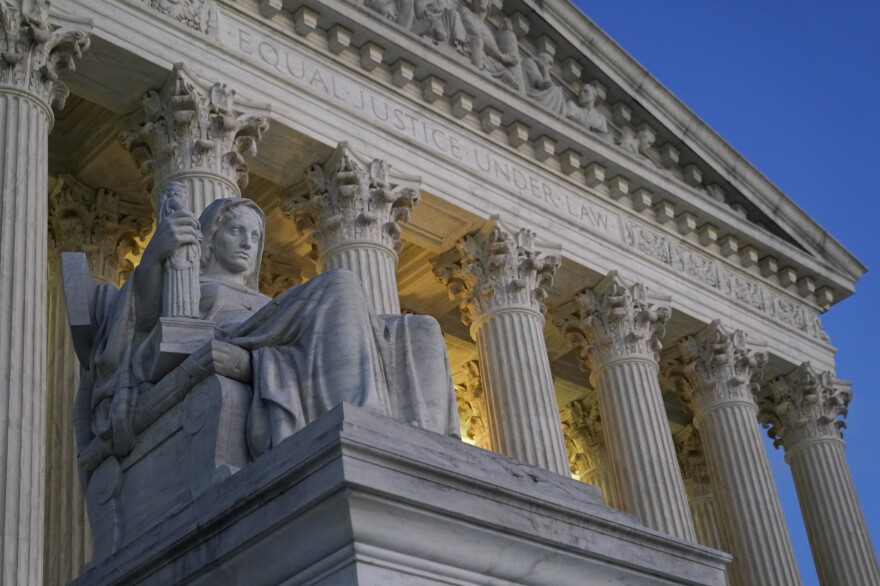A majority of Americans say they oppose the Supreme Court's decision a year ago to overturn Roe v. Wade, want to see affirmative-action programs in college admissions continue and have little confidence in this current court, the latest NPR/PBS NewsHour/Marist poll finds.
The survey of 1,327 adults, conducted from June 12 through 14, also explored the thorny issue of gender-identity politics, finding that most people think gender is determined by birth. They don't want to completely limit the ability for people to have access to gender transition-related health care, but there are sharp divides about when that care should be available.
Warning signs continue for Republicans on abortion rights
The issue of abortion rights played a significant role in the 2022 midterm elections, helping Democrats, and it figures to be a factor in the upcoming presidential election as well.
- 57% oppose the court's overturning of Roe, which guaranteed the right to an abortion in this country. There was, of course, a sharp partisan divide with three-quarters of Democrats and almost 6-in-10 independents against it, but two-thirds of Republicans in favor.
- Notably, in this survey, 66% of women who live in small cities and suburbs, as well as 63% of independent women opposed the decision. Those are key swing groups.
Majority wants affirmative action programs to continue
- Similarly to Roe, 57% also say they think affirmative action programs in hiring, promoting and college admissions should be continued. More than three-quarters of Democrats said so, but almost 6-in-10 Republicans disagreed.
- Independents were split, 50%-46% in favor of keeping affirmative action programs.
- There was a racial divide with 66% of non-whites saying they want the programs to continue, but a majority (52%) of whites also said so.
- There was a major divide by age – with those under 45 almost 20 points more likely to say they want the programs to continue than those older than 45 (67% to 48%).
- There was also a big gender divide, especially in small towns and suburbs. Overall, by a 62%-to-50% margin, women were more likely than men to say these programs should continue. In small cities and suburbs, the split was 62%-to-48%.
Lack of confidence in conservative-majority court
- By a 59%-to-39% margin, respondents said they have very much or no confidence at all in the Supreme Court.
- A majority of Republicans do have confidence (53%), but 62% of independents and 61% of women who live in small cities and suburbs do not.
Majority says gender is defined by birth
Conservatives continue to use gender-identity politics as a culture-war issue, and they have appeared to make inroads with their messaging, the survey found.
- By a 61%-to-36% margin, respondents said the only way to define male and female in society is by the sex listed on a person's original birth certificate.
- There has been a 16-point net change in favor of saying the only definition is by birth certificate since Marist asked the question in May 2022. (Then it was 51%-42%).
- There is a huge political divide. Nearly 9-in-10 Republicans and 6-in-10 independents hold these views, but almost 6-in-10 Democrats said that definition is out of date and needs to be updated to include identity.
Divide over access to gender transition-related health care
- The plurality of respondents (45%) said only adults 18 or older should have access to gender transition-related health care. That includes majorities of Republicans and independents.
- Another 31% said it should be available to those 18 or older and those under 18 with parental consent. A slim majority of Democrats agreed with this. Another 31% of Democrats said it should only be available to adults.
- A quarter said no one, regardless of age, should. Republican women were the most likely to say this (43%).
The survey has a margin of error of +/- 3.5 percentage points. There are 1,212 registered voters in the survey and when they are referenced, there is a margin of error of +/- 3.6 percentage points.
Copyright 2023 NPR. To see more, visit https://www.npr.org.



